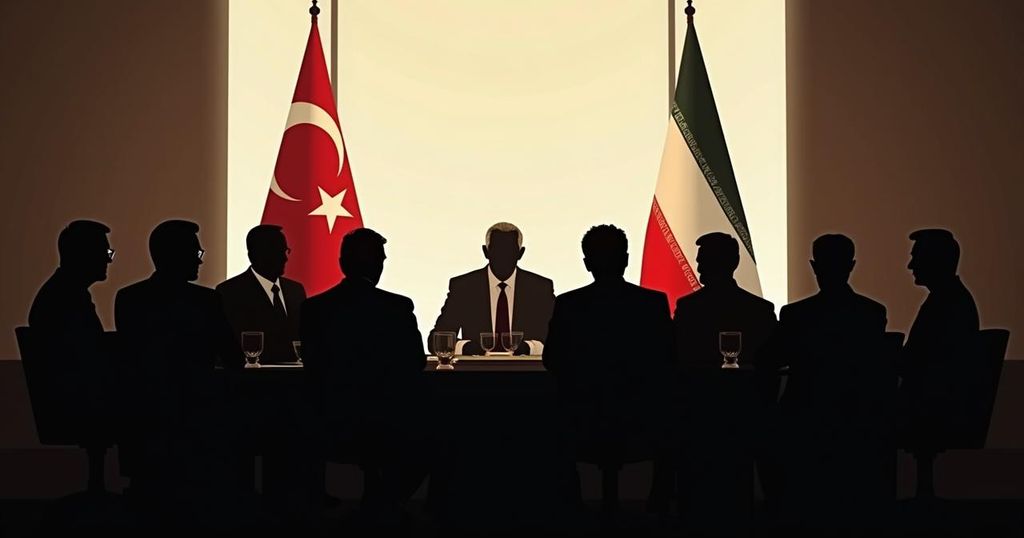Leaders Depart UN Facing Escalating Conflicts Yet Embracing a Path for Cooperation
World leaders left the United Nations assembly with growing concerns over escalating conflicts threatening the Middle East and global relations. U.N. Secretary-General Guterres highlighted the urgent need to revive multilateralism, while the assembly adopted a ‘Pact for the Future’ aimed at addressing climate change and global inequalities. Leaders voiced the need for greater inclusivity in decision-making and emphasized the importance of collaborative efforts to confront ongoing crises amidst a backdrop of political tensions.
UNITED NATIONS — World leaders concluded their assembly at the United Nations amid alarming predictions of an escalating conflict in the Middle East, which threatens to further destabilize global diplomatic relations traditionally anchored in multilateralism—nations cooperating and sharing power. As they returned home, concerns grew about the potential for a broader war, particularly with ongoing tensions in Gaza, Ukraine, and Sudan, alongside Israel’s military activities in Lebanon. U.N. Secretary-General Antonio Guterres expressed the need to revive multilateralism, stating it is dangerously close to collapse. Speeches throughout the week noted a collective failure to address pressing global issues such as climate change, economic inequalities, and unbridled advancements in artificial intelligence and autonomous weaponry. Philémon Yang, President of the General Assembly, described the assembly as “particularly tumultuous,” citing ongoing violent conflicts affecting member nations. He pointed out the precarious situation of peace in the Middle East as Israeli Prime Minister Benjamin Netanyahu defended Israel’s peace aspirations even as bombings occurred in Lebanon. The General Assembly experience deemed it “a very serious and a very intense time,” according to U.N. spokesman Stephane Dujarric. He underscored that, outside the confines of the U.N. building, global events were evolving relentlessly. A noteworthy outcome of the assembly was the adoption of a “Pact for the Future,” a 42-page framework designed to unite the 193 U.N. member states to collaboratively address contemporary challenges including climate change and rising inequality. This pact urges collective action from nations of varying sizes and economic statuses, with Yang announcing initiatives to promote its implementation. However, there were expressions of deep-seated frustration with the current state of international affairs. Burundi’s Foreign Minister, Albert Shingiro, criticized the isolationist behavior prevalent among nations, while Barbados’ Prime Minister, Mia Mottley, called for greater inclusivity of developing nations in global decision-making processes. Nobel laureate Muhammad Yunus emphasized the need for transformational attitudes and values among nations, advocating for a united effort towards eliminating poverty, unemployment, and carbon emissions. Throughout the assembly, speakers from 190 nations addressed pressing issues, with the U.N. Security Council famously convening more frequently than usual, reflecting the urgency of current crises. Despite these challenges, U.S. President Joe Biden optimistically pointed to historical progress achieved against systemic injustices, reinforcing the belief that “Things can get better.” In conclusion, while the international community grapples with escalating tensions and conflicts, the consensus emerging from the General Assembly underscores a critical recognition of the need to reinvigorate multilateralism. The Pact for the Future provides a glimmer of hope, yet widespread action remains necessary to ensure words translate into meaningful advancements for global stability and cooperation.
The United Nations General Assembly serves as a platform for world leaders to discuss pressing global issues, particularly during a time marked by significant international crises. The year 2023 has witnessed ongoing conflicts in Gaza, Ukraine, and Sudan, alongside a notable escalation in military actions involving Israel and Lebanon. These circumstances have put immense pressure on the concept of multilateralism, which has historically been the bedrock of international diplomacy since the establishment of the U.N. in 1945. The assembly at this time revealed a collective concern regarding the state of global relations, underscoring the urgent need for sustained cooperation to address climate change, economic disparities, and the implications of new technologies. The adoption of the “Pact for the Future” could represent a pivotal moment in reinforcing collective action among nations.
The conclusion of the U.N. General Assembly highlighted the complexities and challenges faced by the international community amid escalating conflicts and crises. While leaders acknowledged the fragile state of multilateralism, they also embraced the adoption of the Pact for the Future as a potential mechanism for collective action. The spirit of cooperation among nations remains essential to overcome the present turbulence, with an emphasis on the urgent need for transformation and inclusivity within global decision-making processes. The statements made by various leaders affirm a cautious optimism that, despite current divisions, significant progress can be made in addressing the pressing challenges of our time.
Original Source: www.washingtonpost.com




Post Comment